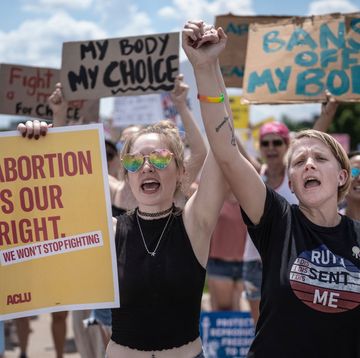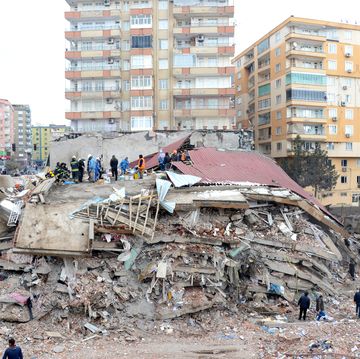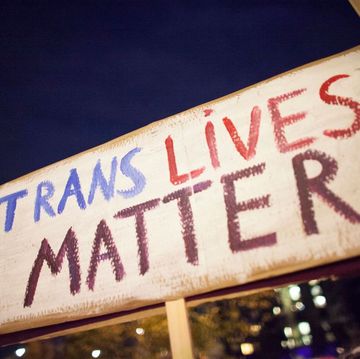As a mother, advocate and citizen, I often think about the role women play in society, particularly in times of crisis. Women are often our primary line of defense against our biggest challenges, from COVID-19 to climate change, and yet too often, women’s contributions are under-appreciated, under-valued, and forgotten.
Take health care, for example. While women are more than 70 percent of community health workers worldwide, they continue to be most impacted by, and least protected against, the oldest and deadliest global diseases, including HIV, TB and malaria. In sub-Saharan Africa, adolescent girls and young women are three times more likely to acquire HIV than adolescent boys and young men. Young children and pregnant women remain most at risk for malaria, an ancient and deadly disease transmitted by mosquitoes.
Harmful laws, policies, and practices continue to impact disease interventions across the globe, increasing health risks by decreasing opportunities for women and girls. For members of the LGBTQI+ community and other historically stigmatized groups, additional risks exist, as their access to essential health services is severely and regularly threatened.
More From Harper's BAZAAR

These vast inequities have profound real-world consequences—for businesses, for communities, and for all of us. There’s no such thing as just a “girls' and women's” issue.
As we continue to see in the United States and around the globe, women still do the vast majority of work in the “informal economy,” the work of caring for children, the elderly, homes, and more. In low-income countries, over 90 percent of all employed women have informal roles and often lack the legal protection of labor laws or social benefits like health insurance and paid sick leave. Women routinely work for lower wages and in unsafe conditions and face persistent discrimination, harassment and in some cases, violence.
Unsurprisingly, these challenges result in negative long-term consequences that impact millions of women's present and future health and well-being. Economically, this affects us all. If women’s participation in the formal economy continues to lag behind their male counterparts, it will result in an estimated US$28 trillion of economic growth left on the table by the year 2025.
So, what can we do?
We can share stories, like those of activist, philanthropist, and entrepreneur Sibulele Sibaca. As a teenager living in South Africa, Sibaca lost her parents to AIDS. Since then, she has dedicated her life to fighting the stigma associated with HIV/AIDS and empowering young women and girls. “We are the ones who are disproportionately affected by HIV; we are the ones who are going to end HIV,” Sibulele says.
We can acknowledge and accelerate progress. In my work as an ambassador for the Global Fund—the worldwide movement to defeat HIV, TB and malaria—I see this progress and the power of collaboration up close. As a public-private partnership to defeat the world’s oldest and deadliest diseases, the Global Fund has saved more than 50 million lives in its over 20-year history; and as Bill Gates and others have noted, it remains one of humanity's most significant achievements. Still today, the Global Fund continues to innovate, driving results further and faster, and investing in women and girls through new vehicles and initiatives like the Africa Frontline First Catalytic Fund. Supported by Johnson & Johnson and the Skoll Foundation, the Fund is dedicated to supporting front-line community health workers—the vast majority of whom are women—ensuring that they are paid, trained, and equipped to lead responses to COVID-19, Ebola and other public health emergencies.
We can expand our focus and investments by connecting issues and movements and following the lead of businesses like Airbnb, Chobani, DoorDash, Reddit, Twitter, Spotify, Pinterest, Levi’s, Patagonia, Etsy and Salesforce who, along with over 350 businesses, are publicly calling for and supporting national paid family and medical leave in the U.S. We can join Pivotal Ventures in its effort to support sustainable childcare solutions in the U.S. and elsewhere, with new investments that could eventually add trillions to the global economy and exponentially accelerate progress for girls, women and families.
We can share expertise and resources, as we do at the Clinton Health Access Initiative (CHAI), to dramatically reduce maternal mortality and ensure that women can access the tools they need to improve their health and economic well-being. Just last month, CHAI and partners announced that more than one million women in 14 low-and middle-income countries had been screened for cervical cancer through a prevention program delivered by country governments. And we can keep score. Over 80 percent of women who screened positive for cervical pre-cancer have received treatment.
We can prioritize partnerships that mobilize additional resources to support front-line workers, prioritize historically excluded communities, engage both proven and new models for change and create accountability in our results. For example, in 2022, Last Mile Health (LMH) committed to working with public sector partners and ministries of health in Liberia, Ethiopia, and Sierra Leone to advance frontline health workforce training, improve gender equity, and strengthen local health systems.
We must act—and continue to act—now, as we are running out of time. We all need to do more—for ourselves, for our children and for future generations.
Governments can create and enforce policies that remove structural inequities. NGOs can collaborate with communities to drive results for women and girls that can be felt and measured. Companies can invest in the female workforce and support women by protecting them in the workplace. Individuals can recognize how and where women are consistently left behind and make small but significant changes to build a more equitable world.
History is populated with stories of leaving women and girls behind. We have the resources, momentum, and moral responsibility to change the future and achieve real, durable equality and equity in our lifetime. Our shared future depends on it.

Chelsea Clinton is an author, advocate, and global health expert. As vice chair of the Clinton Foundation, Chelsea works alongside the Foundation’s leadership and partners to improve global health and wellness, increase opportunity for girls and women, create economic opportunity and growth, and inspire emerging leaders across the United States and around the world.
A longtime public health advocate, Chelsea also serves as vice chair of the Clinton Health Access Initiative and uses her platform to increase awareness around issues such as vaccine hesitancy, childhood obesity, and health equity. In addition to her Foundation work, Chelsea teaches at Columbia University’s Mailman School of Public Health and has written several books for young adults and readers including the #1 New York Times bestselling She Persisted.
Chelsea holds a Bachelor of Arts from Stanford, a Master of Public Health from Columbia’s Mailman School of Public Health, and both a Master of Philosophy and a Doctorate in international relations from Oxford University. She lives in New York with her husband and their children.













